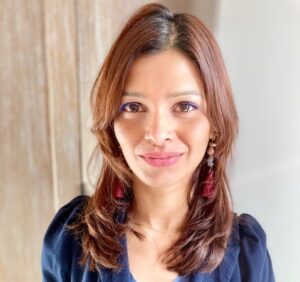
Charlene, a Fellow in this year’s cohort, was shortlisted for the Amnesty Media Awards 2023 along with Afghan reporter Matiullah Shirzad. They were recognised for their story on the drug crisis disproportionately affecting Afghan women and children, as published in The Independent in September 2022.
The two reporters worked on the piece for more than three months. The story draws attention to the drug crisis which has heavily impacted young Afghan women and children. It details how a year after the withdrawal of NATO forces, a lack of international funding has crippled ordinary families and left young women and children reliant on drugs either due to lack of education or food.
It also highlights the Taliban cruelty towards recovering female drug addicts – especially young mothers without food, family support or education – and their desperate attempts to survive.
Although the piece was not chosen as a finalist, it did make the shortlist of just 10 entries in its respective category, chosen by Amnesty to be put before a panel of external judges.
Charlene explained that for this piece it was important to build trust to get access to our contributors, including the UK and Afghan authorities; but that the Taliban didn’t respond to their enquiries. She was hugely grateful to Shirzad, who took huge risks by visiting the only drug recovery facility under Taliban rule.
Charlene elaborates on producing the story: “Reflecting on this piece was hard. After 20 years of Nato forces in the country, I kept thinking how did it come to this? How desperate must a mother get if her only option is to sedate her children with narcotics if she doesn’t have the resources to feed them.
At the same time, while speaking to Afghan women leaders and charity workers, I felt a sense of hope seeing their steadfast determination to fight against Taliban’s cruel policies aimed at making women invisible.
I am grateful to Matiullah Shirzad, an Afghan reporter in Kabul, who I collaborated with and who risked much to get access to the only surviving Taliban-run recovery centre to speak to recovering female addicts. Access to uk’s defence ministry and national crime agency wasn’t always easy- we hit a wall several times.
Throughout the process of reporting this piece, we had to ensure the safety of the women and their children who entrusted us with their stories – and in the process had to relive their trauma.
We are grateful to the judges who saw the importance of this story. Particularly at a time when Afghan women are banned from work and pursuing education. Also thankful to The Independent’s foreign editor David Harding for commissioning and supporting this storytelling as the news cycle has moved on and is overshadowed by other wars.”
